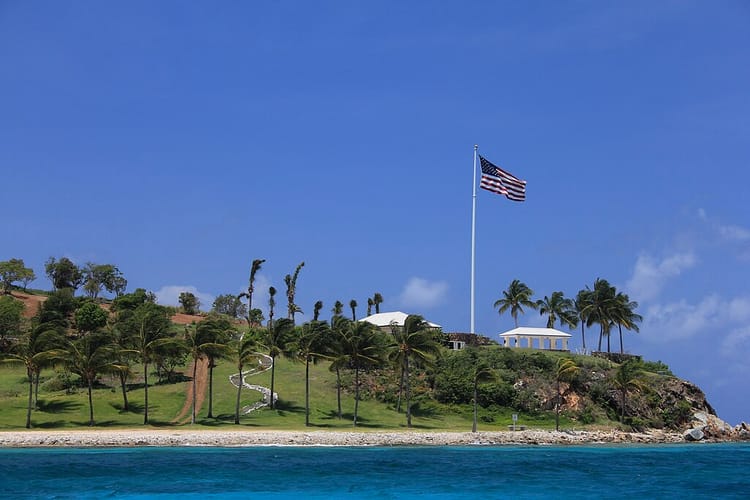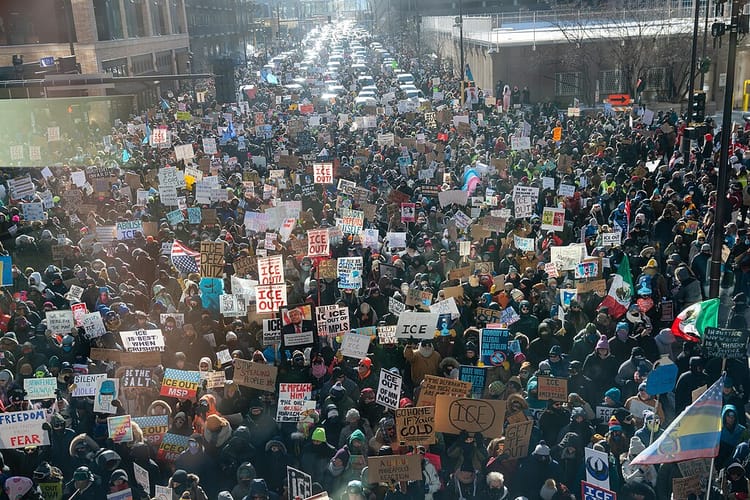The Cop City Battle Is A Climate Fight

The battle over Cop City – a massive $90 million police training facility that would require razing 85 acres of Weelaunee Forest, also known as South River Forest, south of Atlanta—turned deadly in January when a Georgia state trooper shot and killed one of the activists defending the forests, 26-year-old Manuel Esteban Páez Terán, who went by Tortuguita.
It's the latest in an increasingly aggressive standoff between police and land defenders, one that the fossil fuel industry has been, well, fueling, for years now.
The industry's reaction to Standing Rock was incredibly aggressive, and they made their displeasure known immediately through security officers and law enforcement. But it didn't stop there. In the months immediately following Standing Rock, Derrick Morgan, then the VP of public affairs for the American Fuel and Petrochemical Manufacturers (AFPM), drafted proposed legislation that would increase the fines and criminal penalties associated with protest near what's called "critical infrastructure." Today, Morgan is executive vice president of The Heritage Foundation.
That term, "critical infrastructure," can refer to anything from train tracks to pipelines to bridges and refineries. Morgan worked with legislators in Oklahoma to pass the first critical infrastructure bill and several others followed suit. Similar bills have now passed in 17 states and been enacted in a dozen, with more proposed this year.
Standing Rock also resulted in the first fossil-fuel-backed racketeering, or RICO, case against activists. To be clear, the Racketeer Influenced and Corrupt Organizations Act (RICO) was created to deal with organized crime, not protest, which is supposedly protected by the First Amendment. The charge against Standing Rock activists didn't hold but the idea sure did.
In 2021, Kansas passed a critical infrastructure bill that specifically put new charges—aggravated trespassing, criminal damage to infrastructure and aggravated criminal damage to infrastructure—under the state's RICO laws. Now the activists defending the forest in Atlanta are hearing that the prosecutor there intends to bring RICO charges against them. Meanwhile, critical infrastructure legislation in Utah, North Carolina, West Virginia, Illinois, Minnesota, and an even more aggressive bill in Oklahoma are moving through their state legislatures.
It's an attack on the public's free speech rights that happens to coincide with the industry's legal push to expand corporate free speech. In dozens of climate liability and fraud cases, oil majors are arguing that anything they've ever said about climate change, even if it's misleading, is protected because it's political speech.
Read more:
- The Atlanta Police Shooting Is a Warning Sign for the Safety of Environmental Activists, by Kate Aronoff for The New Republic
- Clarifications: On the arrest of six young people for “domestic terrorism”, by Eunus for Ill Will
- The Environmental Movement’s Silence on Cop City Police Killing, by Yessenia Funes for Atmos
This week's must-reads
- Climate Homicide: Prosecuting Big Oil for Climate Deaths (study: Harvard Environmental Law Review)
- Fossil Fuel Companies Donated $700m to U.S. Universities Over 10 Years (The Guardian)
- Why SUVs Are Still a Huge Environmental Problem (The New Yorker)
- Disaster Looms As Key Rivers in Kenya Dry Up (Nation)
- Mexico Amongst the Countries Most Concerned About Climate Change (El Heraldo)





